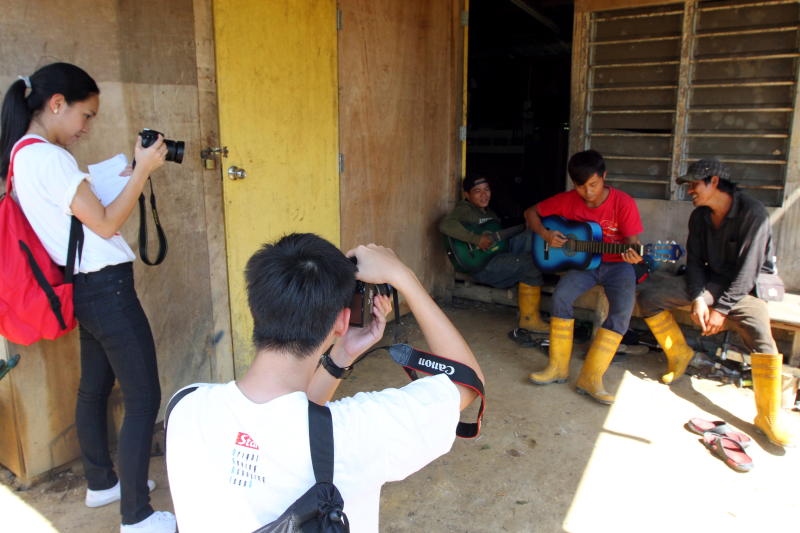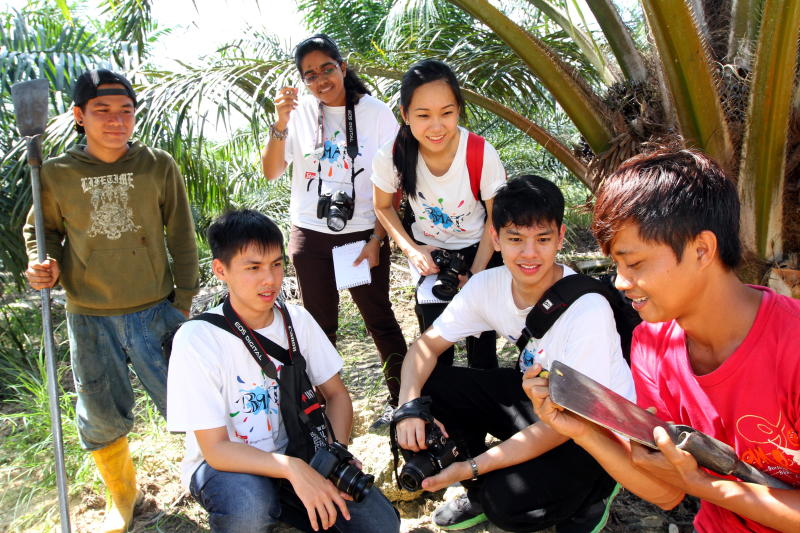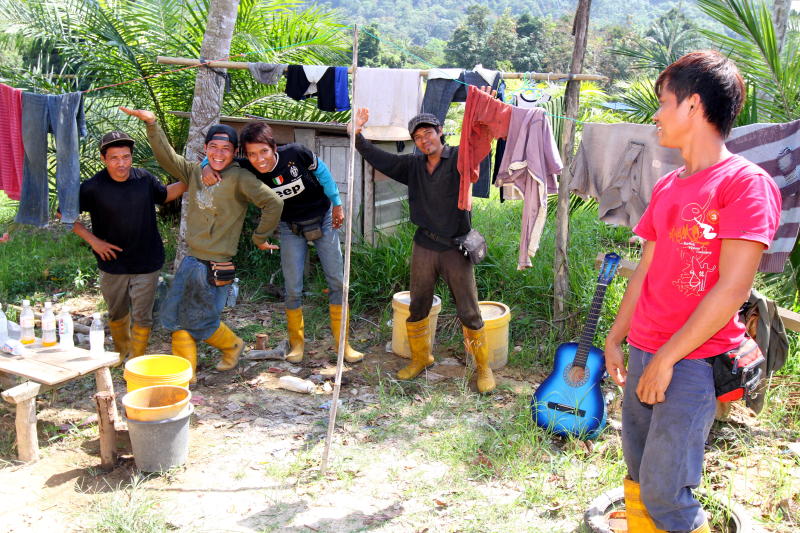Stories by Chia Chien Teng, Chiang Pang Fei, Tharaniya Nair and Tristan Chwee.

The Indonesian workers at Vincent chang’s plantation live and work together, spending most of their free time resting, watching TV or singing and playing the guitar.
LIFE in an oil palm plantation can sound much worse than it really is.
Sure, the workers have to perform manual labour for eight hours a day and live in a small wooden hut with at least four other guys. Yes, there are some natural dangers, like snakes, territorial wild boars and the occasional violent, over-sized monkey.
But still, the fact is that an oil palm plantation isn’t the most difficult place in the world to work in, and that’s something that Achmad Mutaqin, 23, and Aris Atul Huda, 28, can attest to.
The two Indonesians have been working at Vincent Chang’s 100-acre plantation in Raub, Pahang for the past two years, and they have been quite pleased at how things have gone so far.
“It’s been good,” said Aris in Bahasa Indonesia. “Our boss has been kind to us, and we have gained a lot of work experience. We will be able to bring these experiences with us when we go back to Indonesia.”

Achmad Mutaqin (R) showing the BRATs how sharp and heavy the iron rod used by oil palm plantation workers is.
Aris, Achmad and another three Indonesians working at Chang’s plantation – all from the same kampung in Cilacap, Central Java – spend most of their time wielding long steel rods with blades attached at the end, which they use to cut down and carry the large fruit bunches of the oil palm trees. Just carrying the rods alone can be quite a workout, as they are quite heavy.
But it’s all worth it as both Aris and Achmad say they get to regularly send money back to their families.
Chang said oil palm is relatively easy to grow and harvest, which it why it has replaced rubber in many of the plantations in the area.
“It takes much more work to tap rubber, and when it rains, you won’t be able to harvest anything,” said Chang.
Even though he has hired a supervisor, Chang still visits his plantation almost every day, which explains the great rapport he has with his workers. That, and probably the fact that he’s installed Astro for them.
“They all work quite hard. When they’re not working, they’re either resting or watching TV. Once in a while they take the bus to (Raub) town, but that’s about it. I think some of them have been to Bukit Bintang (in KL) before,” said Chang. Those who work past their usual hours are paid overtime, he added.
Chang said virtually all plantation workers in the area are foreigners these days. “I think locals find the work too tough. There are restrictions on the number of foreigners we can employ. We can only hire one foreign worker for every 10 hectares of plantation land. We can hire as many locals as we want, but the pay is only RM30 a day.”
Instead, many locals are starting their own plantations, including some younger entrepreneurs.
“I think they’re mostly run by the older folks, but there are definitely some younger people starting their own smallholder oil palm plantations now,” he said.


Tell us what you think!